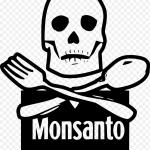What do you do when the evidence doesn't support your conclusion?
pesticide
As a new dad, there's no one I love more than my son. I want to protect him from danger, raise him with the right values, and, more basically, feed him safe, nutritious food.
Join ACSH directors of bio-sciences and chemistry Cameron English and Dr. Josh Bloom as they break down these stories on episode 15 of the Science Dispatch podcast:
People often take drastic steps when they're hungry. Sri Lanka's leadership discovered this firsthand after it banned imports of synthetic fertilizers and pesticides last year.
Like most people, I harbor a set of pretty standard concerns: paying bills, balancing work and family life, and protecting my son from crazy people who “identify” as
Politicians have a complicated relationship with science. When they think the evidence comports with their political goals, they love scientists and the work that they do.
One of the best ways to sustain your bad ideas is to surround yourself with people who think just as you do. Like a cult member who only associates with other true believers, you're effectively cut off from outside scrutiny.
Join ACSH directors of bio-sciences and medicine Cameron English and Dr. Chuck Dinerstein as they break down these stories on episode 12 of the Science Dispatch podcast:
Sri Lanka ran an evil experiment on its citizens last year.
For more than two decades, anti-GMO groups have resorted to the same dishonest claims about the risks of genetically engineered crops.












